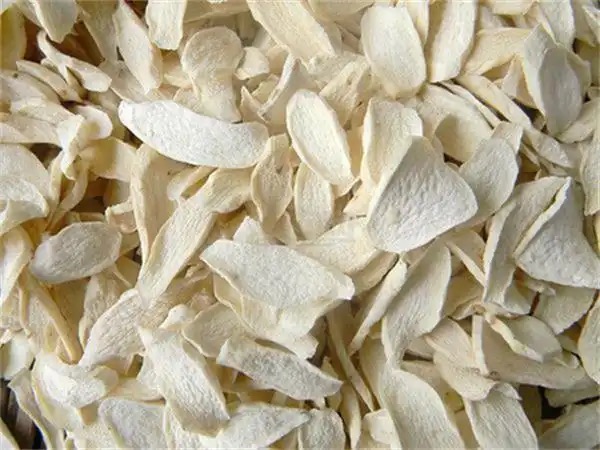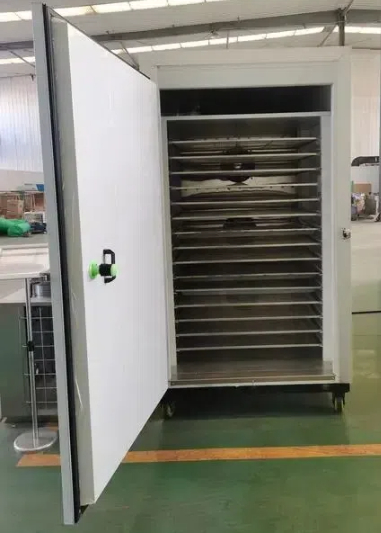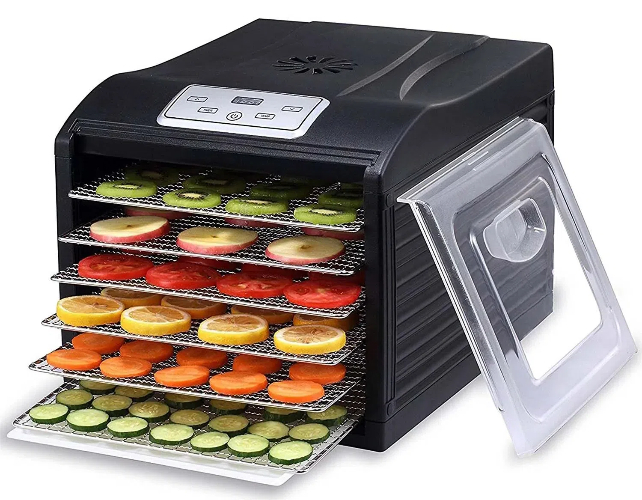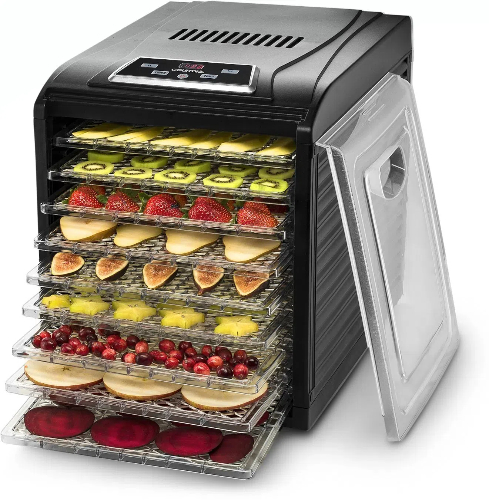
Content Menu
● Understanding Food Drying Technologies
● How Heat Pump Dryers Work
● Advantages of Heat Pump Dryers
● Disadvantages of Heat Pump Dryers
● Advantages of Electric Dryers
● Disadvantages of Electric Dryers
● Choosing the Right Dryer for Your Needs
● The Future of Food Drying Technology
● Case Studies: Successful Applications of Heat Pump Dryers
● Conclusion
● Frequently Asked Questions
>> 1. What is the main difference between heat pump dryers and electric dryers?
>> 2. Are heat pump dryers more energy-efficient than electric dryers?
>> 3. Can heat pump dryers handle all types of food products?
>> 4. What are the maintenance requirements for heat pump dryers?
>> 5. Is the initial investment for heat pump dryers worth it?
Understanding Food Drying Technologies
Food drying is a method used to preserve food by removing moisture. This process inhibits the growth of bacteria, yeasts, and molds, extending the shelf life of food products. There are several drying technologies available, including:
1. Conventional Electric Dryers: These dryers use electric heating elements to generate heat, which is then circulated to dry the food. They are widely used due to their simplicity and effectiveness.
2. Heat Pump Dryers: These dryers utilize a heat pump system to transfer heat from the environment to the drying chamber. They are known for their energy efficiency and ability to operate at lower temperatures.

How Heat Pump Dryers Work
Heat pump dryers operate on the principle of heat transfer. They extract heat from the surrounding air and use it to evaporate moisture from the food. The process involves three main components:
1. Evaporator: Absorbs heat from the air and evaporates refrigerant, which cools the air.
2. Compressor: Compresses the refrigerant, raising its temperature and pressure.
3. Condenser: Releases the heat into the drying chamber, warming the air and facilitating moisture evaporation.
This cycle continues until the desired moisture content is achieved in the food product.
Advantages of Heat Pump Dryers
1. Energy Efficiency: Heat pump dryers are significantly more energy-efficient than conventional electric dryers. They can reduce energy consumption by up to 50%, making them an attractive option for food manufacturers looking to lower operational costs.
2. Lower Operating Temperatures: Heat pump dryers operate at lower temperatures, which helps preserve the nutritional value, color, and flavor of the food. This is particularly important for sensitive products like fruits and vegetables.
3. Versatility: These dryers can handle a wide range of food products, from herbs and spices to fruits and meats. Their adjustable settings allow for precise control over drying conditions.
4. Environmentally Friendly: By using less energy and reducing greenhouse gas emissions, heat pump dryers are a more sustainable choice for food processing.
5. Consistent Quality: The controlled drying environment of heat pump dryers ensures uniform moisture removal, resulting in consistent product quality.
Disadvantages of Heat Pump Dryers
1. Higher Initial Investment: The upfront cost of heat pump dryers is generally higher than that of electric dryers. This can be a barrier for small businesses or startups.
2. Longer Drying Times: While heat pump dryers are efficient, they may require longer drying times compared to electric dryers, especially for certain products.
3. Maintenance Requirements: Heat pump systems can be more complex and may require more maintenance than traditional electric dryers.
Advantages of Electric Dryers
1. Lower Initial Cost: Electric dryers are typically less expensive to purchase and install, making them accessible for smaller operations.
2. Faster Drying Times: Electric dryers can achieve higher temperatures, resulting in quicker drying times for certain products.
3. Simplicity: The technology behind electric dryers is straightforward, making them easier to operate and maintain.
Disadvantages of Electric Dryers
1. Higher Energy Consumption: Electric dryers consume more energy, leading to higher operational costs over time.
2. Potential Quality Loss: The high temperatures used in electric dryers can degrade the quality of sensitive food products, affecting their flavor, color, and nutritional value.
3. Less Versatility: Electric dryers may not be suitable for all types of food products, particularly those that require gentle drying conditions.
Choosing the Right Dryer for Your Needs
When deciding between a heat pump dryer and an electric dryer for food processing, several factors should be considered:
1. Type of Food: Consider the specific food products you will be drying. Heat pump dryers are ideal for delicate items, while electric dryers may be better for robust products.
2. Production Volume: Evaluate your production needs. If you require high throughput, electric dryers may offer faster drying times.
3. Budget: Assess your budget for both initial investment and ongoing operational costs. Heat pump dryers may save money in the long run due to their energy efficiency.
4. Quality Standards: Determine the quality standards you need to meet. If maintaining the nutritional value and flavor of your products is a priority, heat pump dryers may be the better choice.

The Future of Food Drying Technology
As the food industry continues to evolve, so do the technologies used in food processing. Innovations in heat pump technology are making these dryers even more efficient and user-friendly. For instance, advancements in control systems allow for better monitoring and adjustment of drying parameters, ensuring optimal results for various food types.
Moreover, the growing demand for organic and minimally processed foods is driving the need for drying technologies that preserve the natural qualities of food. Heat pump dryers, with their ability to operate at lower temperatures, are well-suited to meet this demand.
Case Studies: Successful Applications of Heat Pump Dryers
Several food manufacturers have successfully implemented heat pump dryers in their operations, showcasing the benefits of this technology. For example, a fruit processing company in China switched from electric dryers to heat pump dryers and reported a significant reduction in energy costs. They also noted an improvement in the quality of their dried fruits, which retained more flavor and color.
Another case involves a herb and spice producer that adopted heat pump drying technology to enhance the quality of their products. The lower drying temperatures helped preserve the essential oils in herbs, resulting in a more potent flavor profile. This change not only improved product quality but also allowed the company to market their products as premium offerings.
Conclusion
In conclusion, both heat pump dryers and electric dryers have their advantages and disadvantages when it comes to food drying. Heat pump dryers offer energy efficiency, lower operating temperatures, and consistent quality, making them a worthwhile investment for many food manufacturers. However, the higher initial cost and longer drying times may be a consideration for some businesses. Electric dryers, on the other hand, provide a lower upfront cost and faster drying times but may compromise on energy efficiency and product quality.
Ultimately, the choice between a heat pump dryer and an electric dryer will depend on your specific needs, budget, and the types of food products you are processing. As a leading manufacturer of food drying machines, we are committed to providing OEM services to brands, wholesalers, and producers worldwide, helping them choose the right drying technology for their operations.

Frequently Asked Questions
1. What is the main difference between heat pump dryers and electric dryers?
Heat pump dryers use a heat transfer system to dry food at lower temperatures, while electric dryers use electric heating elements to generate heat.
2. Are heat pump dryers more energy-efficient than electric dryers?
Yes, heat pump dryers can reduce energy consumption by up to 50% compared to electric dryers.
3. Can heat pump dryers handle all types of food products?
Yes, heat pump dryers are versatile and can handle a wide range of food products, including fruits, vegetables, herbs, and meats.
4. What are the maintenance requirements for heat pump dryers?
Heat pump dryers may require more maintenance due to their complex systems, but regular cleaning and servicing can ensure optimal performance.
5. Is the initial investment for heat pump dryers worth it?
While heat pump dryers have a higher initial cost, their energy efficiency and quality preservation can lead to long-term savings and better product quality.












